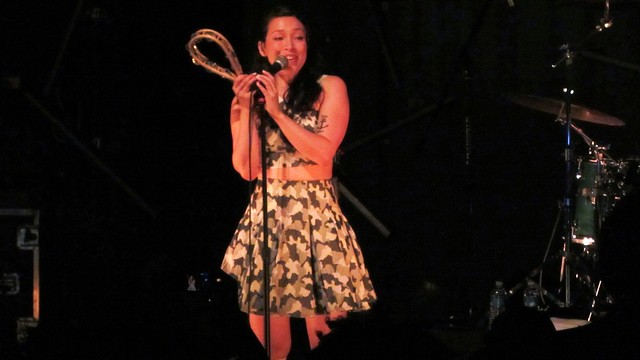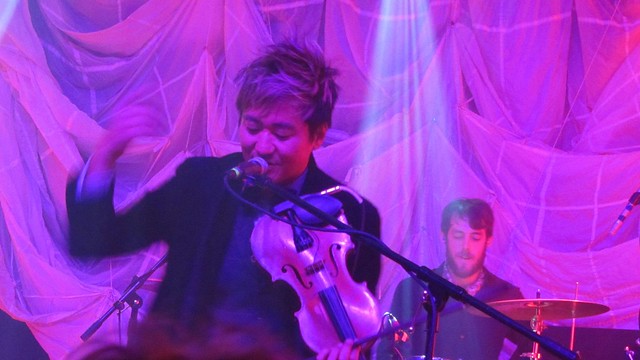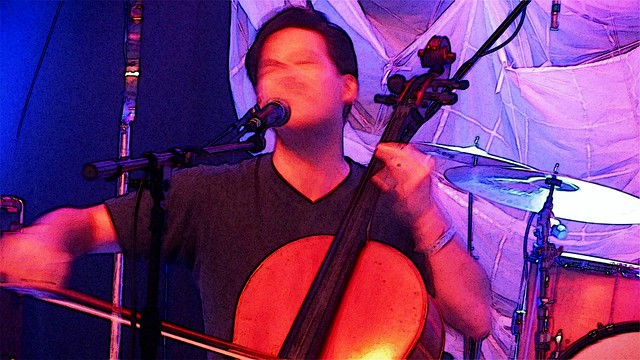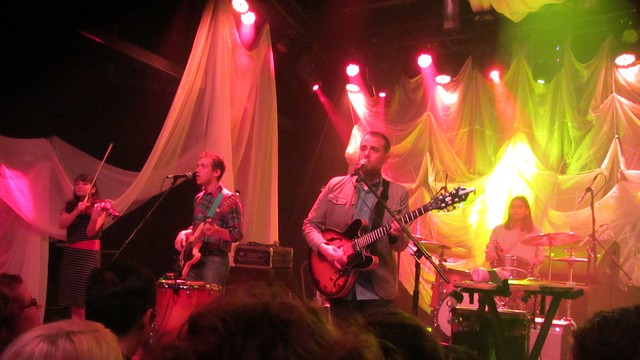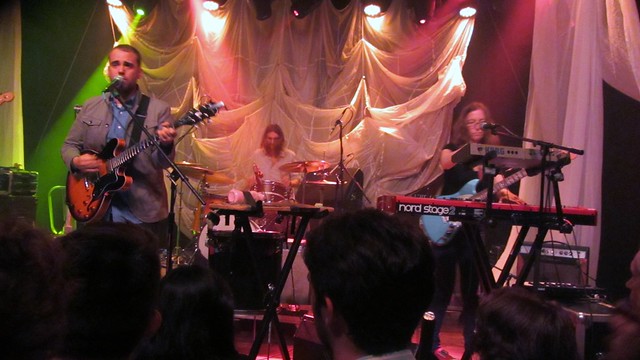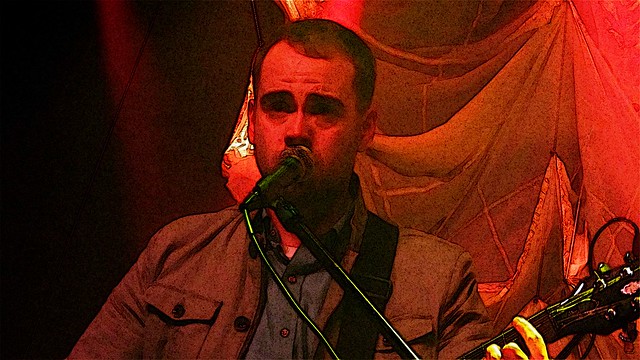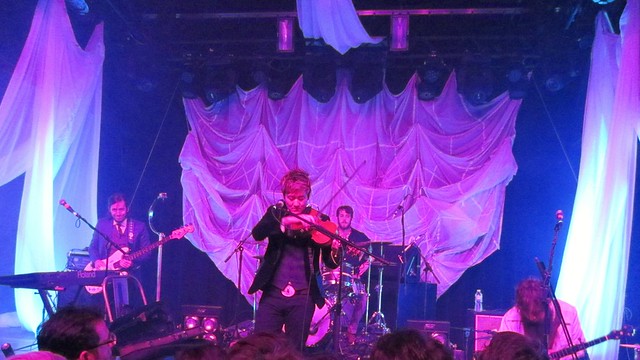
The Little Dragon Nabuma Rubberband tour rolled through Atlanta last night, placing the band in Variety Playhouse on a Saturday night (fortunately, no one apparently told them that touring bands avoid Atlanta on weekends and leave the stages for local bands).
One of the big mysteries of the night was who would be opening, as no one was listed on the venue website, the marquee, the press, or anywhere else I could think of looking.

The answer, as it turned out, was someone named Lawrence Rothman, a soulful, R&B-influenced singer accompanied by a backup singer and a hip-hop dj. "I'm from Missouri," he said by way of introduction, and came across as something of an All-American good-old-boy with a penchant for danceable, blue-eyed soul, but a little bit of Google searching reveals him to be a somewhat more complex character.
He formerly performed as Lillian Berlin of the St. Louis band Living Things, and he's now something of a conceptual artist/performer who, as opener for Little Dragon, takes on a different character each night, so what we saw in Atlanta is probably very different than what others saw in different cities.
Last year in New York, he was flanked by two gauze-covered dancers and performed in silhouette in front of flood lights. His
Facebook page shows many different looks for him, from a bald-headed, face-tattooed punk to a bruised, black-and-blue goth.
Last night, he performed a short, 25-minute or so set of about a half-dozen songs in his everyman, persona, frequently embracing his backup singer. The songs were good and his baritone voice was in fine form, and the audience seemed to appreciate his set. It will be interesting to see what he does next and where he goes from here.
But make no mistake, the sold-out audience was there to see Little Dragon. Interestingly, the audience was much more diverse than most shows I've attended. The audience was at least 50% black, indicating Little Dragon's cross-over appeal, and there was a fairly large contingent of gay men, who often seem to appreciate female-fronted dance-music bands. In other words, the audience was much closer to Atlanta's actual demographics than the predominantly white audience at most of the shows that I go to, and a refreshing opportunity to rub elbows with some new and different fans.
We've seen Little Dragon twice before,
on a big stage at Seattle's Bumbershoot in 2001, and at an intimate,
early-morning show in Portland's Doug Fir Lounge as part of KEXP's MFNW coverage that same year, with singer Yukimi Nagano performing barefoot and still in her pajamas.
Yukimi wasn't in her p.j.'s last night, and looked terrific if a camo-patterned, midriff-baring sundress. Like in 2011, she was an energetic performer, dancing along to the music and cheerleading the band when she wasn't singing, but she's also abandoned some of the Bjork-like quirkiness of the past.
Gone were some of the science-fiction electronics that were parts of their past sound, although elements of krautrock can still be heard in their EDM sound (they played Kraftwerk's Autobahn over the PA before the set). Many of the songs from the new album, such as Twice, are slower and more toned-down than the more aggressive dance music of past albums, and Yukimi has said in interviews that the inspiration for a lot of Nabuma Rubberband's songs came from the dreamy state she used to get from listening alone to some of Janet Jackson's slower ballads.
This new approach has probably led to their increased popularity but it's apparent that this is a band that's not likely to include songs like Blinking Pigs in their set list again any time soon.

The ballads and slower-paced songs might have caused the energy to drop in the hands of a lesser band, but Little Dragon wisely devised their set list to mix the slow and the fast, and when they launched into Ritual Union, the title track from one album back, the audience went wild.

A video crew was filming the entire show and during the encore, Yukimi announced that they were going to shoot a live video that night for their song Klapp Klapp, if we could put up with them performing the song a second time (as it turned out, we could).
Little Dragon will be playing the
Bonnaroo Music Festival today (Sunday, June 15), with a webcast from 9:30 to 10:15 p.m. Central Time, competing against Elton John on the other of two web channels. Hopefully, video of that performance will be available someday, as well as their Live-at-Variety-Playhouse video for
Klapp Klapp.











